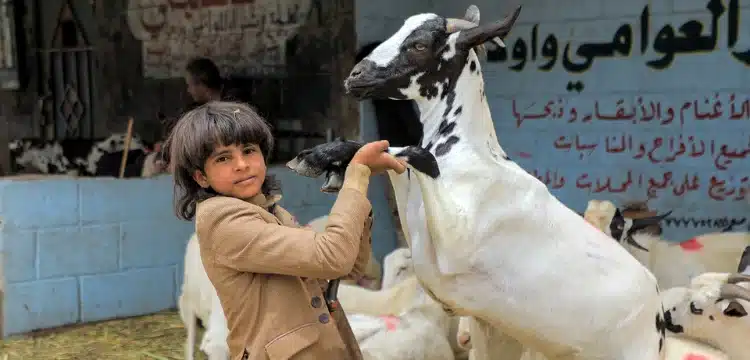Eid ul Azha, also known as the Festival of Sacrifice, is one of the most significant Islamic holidays observed by Muslims worldwide. This festival, which commemorates the willingness of Prophet Ibrahim (Abraham) to sacrifice his son as an act of obedience to God, is rich with cultural and religious symbolism. The act of sacrifice, or Qurbani, is at the heart of the celebration, embodying deep spiritual and communal values.
Historical and Religious Roots
The story of Eid ul Azha originates from the Quranic narrative of Prophet Ibrahim, who was commanded by Allah in a dream to sacrifice his beloved son, Ismail (Ishmael). Demonstrating unwavering faith and submission to God’s will, Ibrahim prepared to carry out the command. At the moment of sacrifice, God intervened and provided a ram to be sacrificed in Ismail’s place. This act of devotion and trust is commemorated annually by Muslims through the ritual of Qurbani.
Spiritual Significance
Obedience and Faith The willingness of Prophet Ibrahim to sacrifice his son is seen as the ultimate act of faith and obedience to God. Eid ul Azha serves as a reminder for Muslims to strengthen their own faith and trust in Allah, reflecting on the importance of submission and piety in their lives.
Sacrifice and Surrender The concept of sacrifice during Eid ul Azha extends beyond the physical act of slaughtering an animal. It symbolizes the readiness of Muslims to give up something valuable for the sake of Allah. This act of surrender is a reflection of their devotion and willingness to prioritize their faith over worldly possessions.
Compassion and Charity The meat from the sacrificed animal is divided into three parts: one for the family, one for relatives and friends, and one for the less fortunate. This practice underscores the values of compassion, generosity, and social responsibility. By sharing the sacrificial meat, Muslims ensure that the blessings of Eid ul Azha reach those in need, fostering a sense of community and solidarity.
Cultural Practices and Traditions
Preparation and Celebration In the days leading up to Eid ul Azha, families around the world prepare for the festival by purchasing animals for sacrifice, cleaning and decorating their homes, and buying new clothes. The morning of Eid begins with special prayers at the mosque, followed by the ritual sacrifice.
Feasting and Sharing Eid ul Azha is also a time for feasting and social gatherings. Traditional dishes, often prepared from the sacrificial meat, are shared among family and friends. The act of eating together and sharing food enhances familial bonds and reinforces community ties.
Global Variations While the essence of Eid ul Azha remains the same, cultural practices can vary significantly across different regions. In South Asia, for example, the festival is marked by elaborate feasts and vibrant markets selling livestock. In contrast, in the Middle East, the emphasis might be more on communal prayers and charitable activities.
Contemporary Relevance
Adapting Traditions In modern times, many Muslims adapt the traditional practices of Eid ul Azha to fit contemporary lifestyles. Some may opt to donate money to charity organizations that perform the sacrifice on their behalf, ensuring that the spirit of Qurbani is upheld even when personal circumstances prevent them from performing the ritual themselves.
Environmental and Ethical Considerations There is also a growing awareness of environmental and ethical considerations related to animal sacrifice. Some communities are exploring more sustainable and humane practices, balancing religious obligations with contemporary concerns about animal welfare and environmental impact.
Conclusion: The Enduring Legacy of Eid ul Azha
Eid ul Azha is a profound expression of faith, community, and compassion. The symbolism behind the sacrifice reflects the core values of Islam, emphasizing obedience to God, willingness to sacrifice, and commitment to helping others. As Muslims around the world celebrate this festival, they not only honor the legacy of Prophet Ibrahim but also reinforce the timeless principles of their faith.
In essence, Eid ul Azha is more than a ritual; it is a powerful reminder of the virtues of faith, sacrifice, and charity, guiding Muslims in their spiritual and communal lives. As the festival approaches, the global Muslim community prepares to celebrate with a renewed sense of devotion and a deeper understanding of the significance behind their acts of worship. Eid Mubarak!











